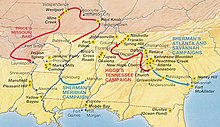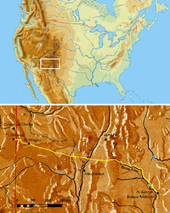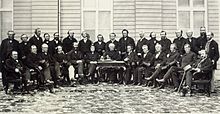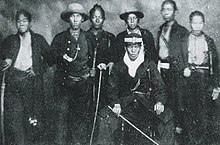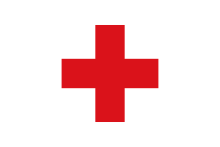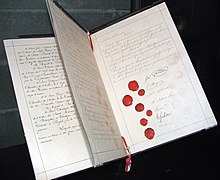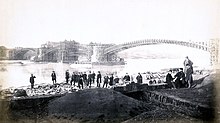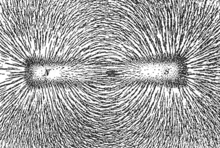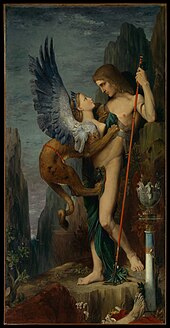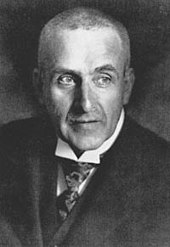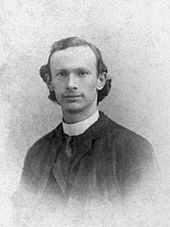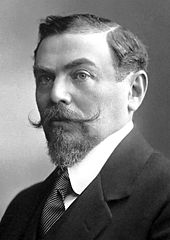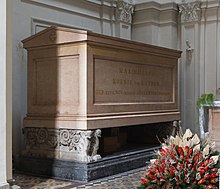1864
Portal history | Portal Biographies | Current events | Annual calendar
◄ |
18th century |
19th century
| 20th century
| ►
◄ |
1830s |
1840s |
1850s |
1860s
| 1870s
| 1880s
| 1890s
| ►
◄◄ |
◄ |
1860 |
1861 |
1862 |
1863 |
1864
| 1865
| 1866
| 1867
| 1868
| ►
|►►
Heads of State · Elections · Necrology · Art Year · Literature Year · Music Year · Sports Year
| 1864 | |
|---|---|
 Friedrich Karl Nikolaus von Prussia storms the Düppeler Schanzen Friedrich Karl Nikolaus von Prussia storms the Düppeler Schanzenin the German-Danish War . |
|
 Abraham Lincoln is re-elected as President of the United States . Abraham Lincoln is re-elected as President of the United States .
|
 The first Geneva Convention The first Geneva Conventionis signed. |
| 1864 in other calendars | |
| Armenian calendar | 1312/13 (turn of the year July) |
| Ethiopian calendar | 1856/57 (September 10-11) |
| Baha'i calendar | 20/21 (March 20/21) |
| Bengali solar calendar | 1269/70 (beginning of April 14th or 15th) |
| Buddhist calendar | 2407/08 (southern Buddhism); 2406/07 (alternative calculation according to Buddha's Parinirvana ) |
| Chinese calendar | 75./76. (76./77.) Cycle
Year of the Wood Rat甲子 ( at the beginning of the year Water Pig 癸亥) |
| Chula Sakarat (Siam, Myanmar) / Dai calendar (Vietnam) | 1226/27 (turn of the year April) |
| Dangun era (Korea) | 4197/98 (2-3 October) |
| Iranian calendar | 1242/43 (around March 21) |
| Islamic calendar | 1280/81 (June 5-6) |
| Jewish calendar | 5624/25 (October 1-2) |
| Coptic calendar | 1580/81 (September 10-11) |
| Malayalam calendar | 1039/40 |
| Rumi Calendar (Ottoman Empire) | 1279/80 (March 1) |
| Seleucid era | Babylon: 2174/75 (turn of the year April)
Syria: 2175/76 (turn of the year October) |
| Vikram Sambat (Nepalese Calendar) | 1920/21 (April) |
The year 1864 brought the first of the later so-called German wars of unification : After Denmark failed to fulfill a short-term ultimatum to withdraw the November constitution , Prussia and Austria attacked the kingdom and defeated it within a few months, advancing to the northern tip of Jutland . In the Treaty of Vienna , Denmark loses the duchies of Schleswig , Holstein and Lauenburg , which are temporarily administered by the victorious powers in the form of a condominium . During the German-Danish War , auxiliaries and delegates took part in a war under the sign of the Red Cross for the first time , and in August the first of the Geneva Conventions drawn up by Gustave Moynier “on the alleviation of the plight of military personnel wounded in the field service” was signed in Geneva .
In the war of secession , the predominance of people and war material on the side of the Union is now prevailing , which, as General Ulysses Grant expects, can cope with a war of attrition more easily. The fighting is still fierce, but with very few exceptions the battles are shifting to Confederation territory , with Union generals increasingly pursuing a scorched earth policy. After the battle in Mobile Bay , Wilmington is the only seaport left in Confederate hands. With the tailwind of these military successes president wins Abraham Lincoln , who founded the Republicans together with parts of the Democratic National Union Party competes, the presidential election in November convincing. Its vice-president becomes the Democrat Andrew Johnson .
In the meantime, the Second Empire is proclaimed in Mexico with the support of the French intervention troops and the naive-romantic Habsburg Duke Maximilian Ferdinand accepts the crown offered to him at Miramare Castle near Trieste, while President Benito Juárez wins the support of the population with extensive land reforms.
In Poland , after a year, the January uprising against Russian rule collapses and in South America, the Spanish-South American War and the Triple Alliance War break out at the same time, two supraregional wars.
Events
Politics and world events
German-Danish War
- 16 January : Austria and Prussia make Denmark a temporary 48-hour ultimatum , the November Constitution repealed and the Duchy of Schleswig to evacuate. Since Denmark did not react, the German-Danish war broke out a few days later .
- 25. bis 29. January : The by the government in Eutin closed Schwartau turnpike after handing over a protest note by Prussian troops destroyed several times and troops in Schwartau quartered. This violates the neutrality of the Grand Duchy of Oldenburg in the conflict with Denmark. In Pohnsdorf and Horsdorf done wrongful billeting .
- February 1 : Beginning of the German-Danish War . In this war, the Swiss doctor Louis Appia and the Dutch naval officer Charles van de Velde wore the symbol of the Red Cross (red cross on a white background) for the first time .
- February 2 : In the battle of Missunde , Danish units repel a Prussian attack.
- February 6th : Austrian units defeat the withdrawing Danish troops south of Flensburg in the Battle of Oeversee , after the Prussians managed to cross the Schlei .
- March 15 : Denmark extends the existing sea blockade against the Schleswig-Holstein ports to all Prussian seaports. A naval war is now also looming.
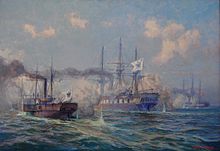
- March 17 : The Prussian attempt to weaken the Danish blockade fleet fails in the naval battle near Jasmund due to material inferiority. It is the first naval battle by a Prussian Navy association since it was founded in 1848.
- April 18th : The storming of the Düppeler Schanzen by the Prussians under Prince Friedrich Karl decides the German-Danish War in favor of the Prussians and Austrians. According to legend, the pioneer Carl Klinke helped the Prussians to victory with his explosive charge. The Danish commander Claude du Plat is killed in the battle.
- April 25 : Representatives of the European states meet in London to find a solution to the conflict. The conference ends on June 25th with no result.
- May 9 : Denmark defeats Prussia and Austria in a naval battle off Heligoland after the Austrian admiral Wilhelm von Tegetthoff , whose flagship caught fire, withdrew. The Danish victory, however, no longer has any effect on the outcome of the war.
- May 12th : A ceasefire in the German-Danish War is negotiated at the London Conference . Negotiations about a possible national division of Schleswig between Germany / Prussia and Denmark bring no result, whereupon the war briefly flares up again.
- June 24th : Austria and Prussia reach the Karlovy Vary Agreement after it became clear that the London conference would not bring any result. In the seven-point agreement, they agree, among other things, to occupy the island of Alsen and all of Jutland as further operational targets. In support of the attack on Alsen, a mock attack is to be carried out against the island of Funen in order to bind the Danish forces there.
- June 25 : After two months, the London Conference - the attempt to end the German-Danish war by diplomatic means - ends without result.
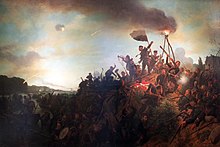
- June 29th : Prussian troops capture the Danish island of Alsen . A little later, the attackers reached the northern tip of Jutland , occupying most of the Kingdom of Denmark and now even threatening the Danish islands.
- July 8th : The Danish King Christian IX. demands the resignation of the Monrad government . Prime Minister Ditlev Gothard Monrad complied with the request on July 11th . Christian Albrecht Bluhme is appointed as his successor and is taking over this position for the second time.
- October 30 : Austria, Prussia and Denmark end the German-Danish war with the signing of the Peace of Vienna . Denmark leaves the duchies of Schleswig, Holstein and Lauenburg to the two German great powers. The treaty is ratified by Denmark on November 12th and Prussia and Austria on November 14th . The ratification documents will be exchanged on November 16 in Vienna. Austria and Prussia rule the duchies as a condominium until 1866 .
- December 7th : The Prussian King Wilhelm I donates the Alsenkreuz in memory of the conquest of Alsen.
Kingdom of Württemberg
- January 6th : Karl Mayer , Julius Haußmann and Ludwig Pfau , who returned to Stuttgart after an amnesty , found the Democratic People's Party in the Kingdom of Württemberg as an association of many democratic revolutionaries from 1848 .

- June 25th : Due to the death of his father Wilhelm I , King Karl becomes the third monarch in Württemberg . He is enthroned on July 12th . More liberal than his father, he replaced Joseph von Linden with Karl von Varnbuler as the leading minister on September 21 and restored freedom of the press and association on December 24 .
Further events in the German Confederation

- March 10 : Crown Prince Ludwig Friedrich Wilhelm von Wittelsbach is proclaimed King Ludwig II of Bavaria after the death of his father Maximilian II Joseph . The following day , he swore his oath on the Bavarian constitution in the meeting room of the State Council Chamber .
- May 1 : In Lübeck , the gate lock that has been in force since the Middle Ages with one interruption during the Lübeck French era is lifted by a Senate resolution. The urban development of Lübeck then proceeded rapidly.
- December 15 : The Social Democrat as an organ of the General German Workers' Association appears for the first time in the form of a sample number. The second sample number will appear on December 21st , the third on December 30th . From January 4, 1865 the regular issues of the weekly paper appear. The magazine is financed and published by Johann Baptist von Schweitzer and Johann Baptist von Hofstetten .
Poland / Russia
- April: When leader Romuald Traugutt is arrested by the Russian army, the January uprising in Poland collapses. Traugutt will be executed on August 5th in the Warsaw Citadel . A group of partisans under the priest Stanisław Brzóska can stay in Congress Poland until December . After the suppression of the uprising, around 128 people involved were executed and around 10,000 were exiled. Governor Mikhail Muravyov-Vilensky then sets comprehensive and rigorous steps in the area of Belarus Russification order. Polish will be abolished as the official language, the dominant position of the Roman Catholic Church and the Polish nobility in social hierarchy, education and economy will be reset. The measures lead to the impoverishment of the Poles and a wave of emigration.
- The Caucasus War ends with the resettlement and expulsion of numerous Circassians through Russia , many of whom flee to the Ottoman Empire .
Greece
- March 17 : The previous Naval Minister Konstantin Kanaris succeeds Dimitrios Voulgaris as Prime Minister of Greece after only four months . Already on April 28 , his Cabinet dissolves again and run by a transitional government under Zinovios Valvis replaced. On August 7th, Kanaris was sworn in again as Prime Minister.
- March 29th : In a treaty, the great powers Great Britain , Russia and Austria agree with Greece on the annexation of the Republic of the Ionian Islands to the Kingdom of Greece, as wanted by the population . On May 21, the British Lord High Commissioner Henry Storcks hands over the power of government to a Greek plenipotentiary and dissolves the Ionian Parliament, at the same time the constitution of the Ionian Islands expires . Since then, the islands have been part of Greece as the administrative region of the Ionian Islands .
Other events in Europe
- January 1 : The liberal radical Jakob Dubs becomes Federal President of Switzerland .
- September 15th : The capital of Italy moves from Turin to Florence .
- For the first time in the UK, a Contagious Diseases Act is being enacted, which allows prostitutes with an STD to be detained in workhouses. In the years that followed, many women from all walks of life turned against the double standard , according to which prostitutes can be criminalized and subjected to degrading investigations, but their customers remain unmolested. From this the suffragette movement eventually developed . Josephine Butler will be the figurehead for the fight against the Contagious Diseases Act .
United States / Confederate States of America
Political and strategic developments in the Civil War
- 29. bis 31 May : Many so-called "Radical Republican", where Abraham Lincoln's position does not go into the issue of slavery far enough, keep in Cleveland the Radical Democracy Convention off to the John C. Fremont was elected presidential candidate. General John Cochrane becomes his runner-up candidate. The goal of the two is the complete abolition of slavery in the United States .
- Early June: In support of the incumbent President Abraham Lincoln and the continuation of the Civil War , the Union of Republicans and Democrats who support the continuation of the war ( war democrats ) form the National Union Party . At the convention from 7./8. June in Baltimore, Lincoln is elected presidential candidate. He will be joined by the war democrat Andrew Johnson as a vice-presidential candidate.
- June 15 : On the recently expropriated land of the Southern -Generals Robert Edward Lee near Washington in the state of Virginia inaugurates US Secretary of War Edwin M. Stanton to Arlington National Cemetery a.

- June 19 : The US warship Kearsarge sinks the Confederate privateer Alabama under the command of Raphael Semmes in the English Channel off the coast of Cherbourg , triggering an international legal dispute with the United Kingdom of Great Britain and Ireland , the so-called Alabama question .
- August 29th to 31st : At their convention in Chicago, the Democrats nominate war supporter George B. McClellan as a presidential candidate and provide him with war opponent George H. Pendleton as a running mate .
- September 22nd : In order to avoid a split in the Republican vote and the threat of defeat for the abolitionists, John C. Frémont renounces his candidacy. John Cochrane shares this decision.
- October 31 : The previous Nevada Territory is completely incorporated into the United States under the name Nevada as the 36th state . Henry G. Blasdel is elected the first governor of the new state. He will succeed Territory Governor James W. Nye on December 5th . Carson City remains the capital , which asserts itself against Virginia City , which is emerging in the silver rush .
- November 8 : Abraham Lincoln wins the 1864 presidential election in the United States with 55% of the vote against George B. McClellan . Andrew Johnson , a Democrat from Tennessee , will become Vice President .
- November: Republicans win a majority in both houses in elections to the 39th United States Congress .
- December 13 : Senator Thomas Jenkins Semmes of Louisiana files a motion to change the flag of the Confederate States of America again . During the war, the previous stainless banner repeatedly led to confusion with the white surrender flag. However, other members of the Senate also want to get the opinion of army officers and so the proposal is first referred to a military committee.
Eastern theater of war
Overland campaign
- Beginning of May: Ulysses S. Grant's overland campaign begins. The aim of this campaign in Virginia is for the first time not primarily the conquest of the capital Richmond , but while William T. Sherman penetrates deep into the south, to tie with the Army of the Potomac Robert E. Lee's Army of Northern Virginia in the north and finally with one Bleeding a war of attrition.
- May 5th / 6th : The battle in the Wilderness between the Army of the Potomac under Major General George Gordon Meade and the Army of Northern Virginia under General Robert Edward Lee ends without a decision.
- May 8. bis 21st May : The bloody Battle of Spotsylvania Court House between the same armies draw. Around 30,000 people are killed on both sides. The south has fewer casualties to mourn, but can no longer easily make up for the losses with new recruits.
- May 11 : In the Battle of Yellow Tavern subject Confederate cavalry of Union supremacy. The cavalry commander of the south, James Ewell Brown Stuart , is fatally wounded.
- May 28 : The Union Army of the Potomac under George Gordon Meade crosses the Pamunkey near Hanover , Virginia. Three days later, the multi-day Battle of Cold Harbor begins .
- June 3 : Union forces under Ulysses S. Grant pay a heavy toll in the attack on positions of the Northern Virginia Army in the Battle of Cold Harbor .
- June 12th : The Battle of Cold Harbor , which began on May 31st, ends with a Confederate victory . The two-day battle at Trevilian Station is decided by the cavalry divisions of the Northern Virginia Army under their new commander, Wade Hampton III. to such units of the Union Army for themselves.
Richmond-Petersburg campaign
- June 9 : The siege of Petersburg , Virginia's second largest city, begins by the Union Potomac Army.
- July 30th : In the crater battle as part of the siege of Petersburg , the southern states defeat the northern states after the latter have trapped themselves in a crater that they themselves had previously blown into the ranks of the southern army.
Shenandoah Valley
- May 15 : The Confederates under Major General John C. Breckinridge force the withdrawal of Union troops under Major General Franz Sigel from the Shenandoah Valley in the Battle of New Market .
- September 22nd : The Battle of Fishers Hill in Virginia is won by Northern troops against Confederate units .
- October 19 : In the battle of Cedar Creek , the northern states defeat the southern states with their own heavy losses.
More locations in the east
- October 19 : In the St. Albans incident , Confederate soldiers arriving from Canada rob three banks in the US state of Vermont and loot $ 208,000 .
- 24. bis 27. December : The first bombardment of Fort Fisher ends with the retreat of the Union units.
Western Theater of War and Trans-Mississippi
Red River Campaign
- March 10 to May 22 : The Northern States' Red River campaign ultimately fails, despite being victorious in the Battle of Pleasant Hill on April 9 .
Atlanta Campaign and March to the Sea
- May to September: In the Atlanta campaign , Union forces under William Tecumseh Sherman defeat the Confederate Army of Tennessee in northern Georgia .
- July: Confederate General Joseph E. Johnston is replaced by John Bell Hood as Commander of the Army of Tennessee.
- September 2 : During the Atlanta campaign , Major General William T. Sherman and his troops take the city of Atlanta , Georgia, which has been besieged since July . This victory was instrumental in helping Abraham Lincoln to be re-elected in the November presidential election.
- November 11th : William T. Sherman burns down the city of Atlanta and begins marching with his troops to the sea through Georgia to Savannah .
- November 30th : The Confederates win the Battle of Honey Hill . William T. Sherman's " March to the Sea " started on November 15th is not stopped by this. He reached the port city of Savannah , Georgia on December 21, leaving scorched earth in the Confederate area on the way.
- December 21 : William T. Sherman's march to the sea ends with the capture of Savannah .
Combat operations in Tennessee
- November 30th : The southern states win the Battle of Franklin and take the city of Franklin , Tennessee, after the withdrawal of the Army of the Ohio from John McAllister Schofield . With a loss of over 6,000 men, the Confederate Army of Tennessee under John Bell Hood is almost wiped out. The Ohio Army retreats to Nashville back and joins the Army of the Cumberland by George Henry Thomas .
- December 16 : In the losing battle of Nashville , the last major combat operation in Tennessee during the Civil War, Union troops under George Henry Thomas inflict a crushing defeat on the Army of Tennessee, which had already been greatly reduced in the Battle of Franklin .
Sea warfare and fighting along the Mississippi
- February 17 : After two failed attempts, the Confederate submarine CSS Hunley is the first submarine in the world to sink an enemy ship, the blockade ship Housatonic , with a spar torpedo . In the action, however , the Hunley itself is lost with the entire crew.
- April 12 : In the so-called Battle of Fort Pillow , Confederate forces commit a massacre of mostly African-American prisoners.

- August 5 : Union Admiral David Glasgow Farragut succeeds in conquering a supply base and the penultimate port of the Confederation in the battle in Mobile Bay against a Confederate fleet under Franklin Buchanan . This is followed by the siege of two forts. Fort Gaines surrenders on August 8th , Fort Morgan held out until August 23rd . The city of Mobile itself remains in Confederate hands under General Dabney Herndon Maury .
Missouri
- September 27 : Bushwhackers under William T. Anderson and William Quantrill commit the massacre of Centralia , Missouri. Several unarmed Union soldiers are dragged from a train and immediately executed. Frank and Jesse James are also involved in the massacre .
Other events in the western territories
- January 14 : Kit Carson begins his campaign against the Navajo (Diné) people, with which he was commissioned by the US government the previous year. After a brief siege in the Canyon de Chelly , into which they have withdrawn, the last of the Navajo give up.
- March: The Diné's “Long March” begins. By 1868, more than 8,500 people were forcibly relocated from their home in what is now Arizona on a 480 kilometer route to Bosque Redondo in what is now New Mexico. Numerous Navajos do not survive the march.
- May 28 : The Montana Territory is split off from the Idaho Territory . Another part is added to the Dakota Territory .
- July 28 : In the Battle of Killdeer Mountain , Dakota Territory , 2,500 cavalrymen defeat about twice as many Sioux warriors .
- November 25th : The First Battle of Adobe Walls is the largest skirmish between Indians and whites during the Civil War. Colonel Kit Carson and his troops, reinforced by Ute and Jicarilla Indians, attack a Kiowa Apache camp . However, these are able to push back their attackers and drive them back into the mountains behind Adobe Walls with a group of around 1000 warriors .
- November 29 : Around 600 members of the 3rd and 1st Colorado Cavalry Regiments under Colonel John M. Chivington perpetrate the Sand Creek massacre on Cheyenne and some Arapaho people who are in winter camp in Colorado Territory . Most of the 133 victims are women and children; most of the warriors were on the hunt at the time of the massacre. George Bent and Howling Wolf are among the few survivors who can report on the massacre. When the American public heard of the events, they were shocked and investigations were opened. However, Chivington will never be held responsible for the crime. The incident led to a campaign of revenge known as the Julesburg Raids by Sioux- backed Cheyenne and Arapaho early the following year .
Canada
Following the election victory of the Conservatives on 30 May form Étienne-Paschal Taché and John Macdonald in from French-speaking Lower Canada and English-speaking Upper Canada existing Province of Canada a government. In June, the Liberals under George Brown and George-Étienne Cartier join the government. The resulting grand coalition is increasingly dedicated to the project of a federal state .
From September 1st to 8th the Charlottetown Conference will take place in Charlottetown , the capital of Prince Edward Island , an international conference at which representatives of various colonies in British North America will discuss the possible merger of a Canadian Confederation for the first time .
In Quebec is from 10 to 27 October , the Quebec Conference held a follow-up conference of the Charlottetown Conference , the delegates of the Province of Canada and the British colonies of New Brunswick , Nova Scotia and Prince Edward Iceland on future Canadian Confederation advice. Newfoundland is not directly involved in the conference, but it sends two observers. The main point of contention at the conference is the clash between the delegates, who are calling for a strong central government, and those who stand up for extensive provincial rights, especially the French-speaking provinces, as they fear the loss of their cultural identity under a central government. The delegates finally agree on a compromise in which power is to be shared between federal and provincial governments. They also resolve the establishment of an elected House of Commons and a Senate composed of appointed MPs . The “Seventy-Two Resolutions” ultimately determine the structure of the future Canadian constitution .
Mexico
The conservative junta in Mexico , supported by the French intervention troops, proclaims the Second Empire in the country and offers the crown to the Austrian Archduke Ferdinand Maximilian , the younger brother of the Austrian Emperor Franz Joseph I.

Against the will of his family and renouncing his inheritance claims in the Austrian Empire , Maximilian accepted the crown on April 10 at Miramare Castle near Trieste on the condition that his rule was wanted by the Mexican people. The delegation then presented him with a fake referendum and assured him that the Mexican people wanted nothing more than him as emperor. At this point in time, Benito Juárez has already been proclaimed President of Mexico again and his successful land reform is growing in popularity in the country.
When Maximilian and his wife Charlotte arrived in Mexico on May 29, the country was politically divided. The conservatives loyal to the emperor rule in Mexico City and the center of the country, while the liberals under President Juárez have their stronghold in Veracruz . The imperial couple had to fight their way to the capital under adverse circumstances. There he had Chapultepec Castle converted into an imperial residence and the Paseo de la Emperatriz built as a direct connection road and his official residence on the Zócalo .
The French general François-Achille Bazaine won numerous victories against the republican troops and was promoted to Marshal of France on September 5th .
With liberal ideas such as the ban on child labor, maximum working hours and the introduction of a constitutional monarchy, Maximilian loses the support of a large part of the conservatives in the course of the year and can ultimately only rely on the European intervention troops.
- November 19 : The Austrian volunteer corps set up in Ljubljana to protect Emperor Maximilian begins its crossing to Mexico.
Other events in Central America
- February 15 : José María Medina is re-elected President of Honduras . He makes his comrade Florencio Xatruch Villagra his deputy, but soon dismisses him because of disputes.
- December 5 : An uprising against the Medina government breaks out in Olancho . Around 1,000 insurgents march on Tegucigalpa .
- December 25th : President Medina issues an order allowing prisoners to be killed.
- A conservative constitution is promulgated in El Salvador under President Francisco Dueñas Díaz .
South America
- March 1 : Atanasio Cruz Aguirre replaces his conservative party colleague Bernardo Prudencio Berro as President of Uruguay .
- April 14 : Spain occupies the Peruvian Chincha Islands in order to benefit from the local guano mining and at the same time blocks the Peruvian port of Callao with its fleet . The Spanish-South American War begins.
- May 3 : Under President Juan Crisóstomo Falcón , who has been in office since the previous year , Venezuela receives a new federal constitution and is converted into the United States of Venezuela . The abolition of the death penalty , which was decided in the previous year, is enshrined in the constitution.
- August: The Brazilian Empire declares war on the Uruguayan government , thereby supporting the rebellious liberal Colorados . The Uruguayan War begins. The troops of the conservative Blanco government have little to oppose the superior Brazilian land and sea forces .
- August 30 : Paraguayan President Francisco Solano López , who tried in vain to mediate in the civil war between the Colorados and the troubled Conservative government of the Blancos in Uruguay, calls on Emperor Pedro II of Brazil to end military interference in the country of the region.
- October: Brazil begins to support the insurgents led by Venancio Flores with the landing of troops and the siege of Montevideo . Paraguay then confiscated a Brazilian ship on the Río Paraguay and imprisoned the crew and the governor of the Brazilian province of Mato Grosso who was on board .
- December 13 : Paraguay declares war on Brazil, triggering the Triple Alliance War in South America. Paraguayan troops invade the Mato Grosso that same month, where they encounter little resistance and take the small fort of Nova Coimbra .
- December 28 : José Mariano Melgarejo leads a successful coup against military dictator José María Achá and makes himself president of Bolivia .
Africa
- July 14 : The Madagascan Queen Rasoherina separates from the popular Conservative Prime Minister Rainivoninahitriniony both as husband and as head of government and sends him into exile in Antsirabé . He is replaced by his half-brother Rainilaiarivony , who pursues a friendly policy towards the European powers .
- After the Kololo people were severely weakened by a malaria epidemic , the Lozi revolutionized the Kingdom of Barotse in what is now Zambia .
- Since both sides are severely weakened by disease, the second war between the Ashanti Empire and the British Kingdom in what is now Ghana ends after around a year without major fighting.
Empire of China
- July 19 : The Taiping Uprising ends with the capture of Tianjing , the capital of the Taiping Empire, proclaimed in 1851 , by the army of the Chinese Empire . The imperial general Zeng Guofan is then raised to the nobility. He then turns to support Prince Senggerinchin in suppressing the Nian uprising .
Japan
- February 8th : A new nengō in the Japanese era begins. The Genji era lasted barely a year.
About 150 samurai, priests and farmers from the Daimyat Mito gather on March 27 on Mount Tsukuba and declare their intention to propagate sonnō jōi . On their way through several feudal, during which increased their number to 1,500 to 2,000, they provide in the following months, several battles with the troops of the Tokugawa - shogunate , are deposited until in December of the same year. These riots, known as Tengu uprisings (天狗 党 の 乱, Tengutō no ran ), are the first early forerunners of the later Meiji Restoration .
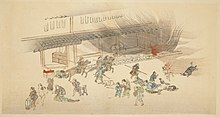
On August 20, there is an uprising at the Hamaguri Gate in Kyoto , triggered by political dissatisfaction among population groups under the slogan Sonnō jōi . The uprising was brutally suppressed relatively quickly.
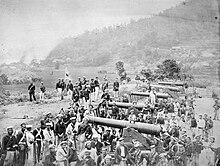
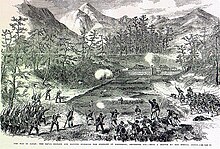
In retaliation for attacks by the Mōri clan and irregular troops in the previous year on foreign ships passing the Kammon Strait between Honshū and Kyūshū , naval forces from Great Britain , the Netherlands , France and the United States seized fortifications as part of a punitive expedition in August and September of the fiefdom of Chōshū in Nagato Province . The aim of the Shimonoseki bombing is to ensure free passage for foreign ships through the road, as it is the fastest sea route from Nagasaki to Osaka and Edo . The Allies then land marines to complete the demolition of the fortifications. Chōshū then quickly seeks peace. After the end of the hostilities, the foreign powers demand compensation for their expenses.
The military conflicts make the inferiority of the Sonnō jōi rebels clear to the Western powers and the Bakufu . Therefore, the rebelling Han are beginning to move away from their xenophobic position and to cooperate with the foreign powers. Sonnō jōi becomes the sole catchphrase for the replacement of the shogunate. Satsuma , Chōshū and Tosa establish extensive trade contacts with Great Britain. The newly established relationships are used to build powerful militias based on the Western model. Their organization differs fundamentally from the traditional Japanese military hierarchy, since for the first time non-aristocratic Japanese are also allowed to carry weapons. The best-known militia is the Kiheitai that originated in Chōshū and was built up by Takasugi Shinsaku .
Other events in Asia
- June 2 : The Caucasus War ends after almost 50 years with the victory of the Russian Empire and the expulsion of numerous peoples in the North Caucasus . The last fights lead to a massacre because many men, women and children prefer to fight to the death rather than surrender.
- Soldiers in Portuguese Timor rebel against Governor José Manuel Pereira de Almeida because of his authoritarian leadership style and lack of pay. Almeida must flee. Until his successor José Eduardo da Costa Meneses arrives , the colony is run by a Conselho Governativo . Meneses has to take out a loan from the neighboring governor general of the Dutch East Indies for the missing pay .
Australia, New Zealand and Oceania
- November 24 : Prime Minister Frederick Whitaker resigns over disagreement with Governor George Edward Gray . Frederick Weld will be the new Prime Minister of New Zealand .
- Blackbirding , the forcible recruitment of workers from Melanesia , which emerged in Australia last year , is now also being used for plantations in Fiji . By 1911 , 27,027 people had been brought to Fiji by deception or kidnapping.
International organizations
- January 2nd : The second national Red Cross Society is founded with the Association for the Care of Wounded Warriors in Oldenburg .
- April 16 : At the Düppeler Schanzen in the German-Danish War , assistants and delegates take part in a war for the first time under the sign of the Red Cross.
- August 22nd : At an international conference in Geneva , on the initiative of the International Committee of the Red Cross of twelve states founded by Henry Dunant the previous year , the first Geneva Convention “on the alleviation of the plight of military personnel wounded in the field” , drawn up by Gustave Moynier , is signed ; it forms the basis of international humanitarian law .
- September 28 : The International Workers 'Association ( IAA ) is founded in London's St. Martin's Hall , an amalgamation of workers' societies which, according to the provisional statutes, "pursue the same goal, namely: the protection, progress and complete emancipation of the working class " . The First International will make a significant contribution to the strengthening of the labor movement over the next few years . The most important body of the association is the General Council, of which Karl Marx is a member.
economy
State regulations
- April 22nd : The US Congress allows the Coinage Act of 1864 to pass. The law provides for the future issue of two-cent coins labeled In God We Trust . The motto is now featured on all United States currency coins and bills .
- May 4th : The Société Générale is founded in Paris to promote trade and industry in the Second Empire .
Business start-ups
- February 15 : The 22-year-old Gerhard Adriaan Heineken buys the Amsterdam brewery De Hooiberg and thus founds the Heineken company .
- March 31 : Eugen Langen and Nicolaus Otto found NA Otto & Cie in Cologne, the predecessor company of the engine manufacturer Deutz .
- June 4th : Wilhelm Gustav Dyckerhoff terminates his contract with Carl Brentano and together with his sons Gustav and Rudolf founds the Portland cement factory Dyckerhoff & Sons in Mainz-Amöneburg
- before September 11th: Gebr. Eickhoff Maschinenfabrik und Eisengießerei is founded.
- December 23 : The first edition of the Swedish daily Dagens Nyheter , founded by Rudolf Wall with the support of the publisher Albert Bonnier , appears.
- December 29th : The Portuguese daily Diário de Notícias , founded by Eduardo Coelho , appears for the first time in Lisbon.
- Johann Karl Fix, whose father, who was born in Bavaria, followed King Otto from Wittelsbach to Greece, founds the Fix brewery in Athens , the first and until the middle of the 20th century the only large brewery in Greece.
traffic
- February 23 : The groundbreaking for the construction of the Brenner Railway takes place on Bergisel . The technical manager for the construction is Karl Etzel , as the construction manager for the alignment is Achilles Thommen .
- May 9 : The Pfaffendorfer Bridge over the Rhine in Koblenz , built by the Rheinische Eisenbahn-Gesellschaft , is inaugurated as a pure railway bridge . It connects the left with the right Rhine route .
- June 25 : The first Dutch tram line , from which the tram The Hague develops, opens with a horse-drawn tram from The Hague to Scheveningen from the Dutch Tramway Company .
- July 6th : The French Emperor Napoleon III, called on as arbitrator in the dispute between the Suez Canal Society and the Sublime Porte over the construction of the Suez Canal . announces its award: The firm of July 20, 1856 on the regulation of employment relationships is repealed and forced labor is ended. The canal company is entitled to 38 million francs as compensation. The company has to complete the freshwater canal and return the surrounding land for a further compensation of 16 million francs. For the return of the land around the Suez Canal, the company receives 30 million francs. The award will be formally exchanged in December, but the sultan's approval to build the canal is still pending. Ferdinand de Lesseps , who is related to Empress Eugénie , therefore turns to the Emperor again.
- July 7th : The last section of the Linha do Norte in Portugal opens between Entroncamento and Estarreja . The only thing missing on the railway line between Lisbon and Porto is a bridge over the Rio Douro .
- November 30th : The Aspern Bridge between downtown Vienna and Leopoldstadt is opened.
- December 8 : The Clifton Suspension Bridge over the Avon near Bristol , designed by Isambard Kingdom Brunel , is inaugurated.
- The Lima tram opens as a horse-drawn tram .
- The third section of the Upper Neckar Railway is completed.
- Thanon Charoen Krung , the first paved road in Bangkok , is completed after more than three years of construction.
- The St Paul's Railway Bridge over the Thames in London opens.
Other economic events
- October 10th : 17 journeyman wool weavers from Fünfhaus near Vienna found the First Lower Austrian Workers' Consuming Association . Each of the members of the cooperative undertakes to dedicate 10 Kreuzers a week to shopping together. At the end of the first month, a first sack of flour can be purchased together.
- October 24th : The pneumatic tube in Hamburg goes into operation.
- The since 1718 existing Viennese porcelain manufactory , the second oldest porcelain manufacturer in Europe will be closed.
science and technology
Africa research
- March 14th : The Briton Samuel White Baker and his companion and future wife Barbara Maria Szasz discover Lake Albert in Africa . They then move further upstream and be the first to see the Murchison Falls, which Baker called it .
- March 29th : Alexandrine Tinné returns to Karthum from her trip to the upper reaches of the Nile, which she interrupted after the death of her mother .
More voyages of discovery
- The Vancouver Island Exploring Expedition begins on Vancouver Island in the summer and lasts until October 21 . The aim of the expedition, financially supported by Governor Arthur Edward Kennedy , is to explore the unknown areas of the island, which lie beyond the core settlements of the capital Victoria and the settlements of Nanaimo and Cowichan Valley . Various sponsors, on the other hand, hope that gold will be found.
astronomy
- April 6 : As part of his investigation of the Coma cluster , the German-Danish astronomer Heinrich Louis d'Arrest finds the elliptical galaxy NGC 4884 .
- May 2 : The English astronomer Norman Pogson Robert discovered in the asteroid belt the asteroid Sappho .
- May 5 : Heinrich Louis d'Arrest discovers the elliptical galaxy NGC 4874 in the constellation Haar der Berenike .
- May 8th : The German astronomer Albert Marth discovered the galaxy NGC 5384 in the constellation Virgo .
- May 10 : Heinrich Louis d'Arrest finds the galaxy NGC 3787 in the constellation Leo .
- August 3 : Albert Marth discovers the galaxies NGC 164 and NGC 236 in the constellation Pisces .
- 29 August : Albert Marth sighted in the constellation Pisces as NGC 138 , NGC 139 and NGC 141 out galaxies .
- September 2 : Albert Marth is the first to notice the galaxies NGC 359 and NGC 364 in the constellation Whale .
- September 5 : Albert Marth discovered in the constellation Pegasus now known as NGC 7673 known galaxy .
- September 27th : During observations in the constellation Whale Albert Marth finds the galaxies with the later designation NGC 291 , NGC 293 , NGC 298 , NGC 321 , NGC 325 , NGC 327 and NGC 329 .
- September 30th : The German astronomer Ernst Wilhelm Leberecht Tempel discovered the asteroid Terpsichore in the asteroid belt .
- October 8 : Heinrich Louis d'Arrest finds the galaxy later cataloged as NGC 277 in the constellation Whale .
- October 30th : Heinrich Louis d'Arrest discovers the galaxy NGC 541 in the constellation Whale.
- October 30 : Albert Marth discovers the galaxies NGC 15 , NGC 41 and NGC 42 in the constellation Pegasus .
- November 27 : Karl Theodor Robert Luther , director of the Düsseldorf observatory , discovers the asteroid Alkmene in the asteroid belt .
- November 29th : Albert Marth becomes aware of the galaxies NGC 4 and NGC 7840 in the constellation Pisces .
- After a break of around two years, the Federal Observatory in Zurich designed and built by Gottfried Semper is completed. Johann Rudolf Wolf becomes the first director of the observatory .
Science and medicine
- March 15 : The US dentist Sanford Christie Barnum introduces the use of rubber dams in the dental practice .
- James Clerk Maxwell formulates the Maxwell equations , his theory of electric and magnetic fields .
Teaching and Research
- Territorial Governor John Evans founds the Colorado Seminary in the Colorado Territory , from which the University of Denver later developed.
Shipbuilding
- June 11 : The gunboat Smertsch the Imperial Russian Navy with two of the Englishman Cowper Phipps Coles developed turrets runs in St. Petersburg from the stack.
- August 20: The ironclad SMS Arminius , ordered by the Prussian Navy from the Samuda Brothers shipyard on the Isle of Dogs near London , is launched. A year later, it becomes the first armored Aries ship in Prussia. On October 24 in Bordeaux also runs Cheops launched.
- October 2 : Ictíneo II , one of the first mechanically operated submarines , makes its maiden voyage from the port of Barcelona.
- The first edition of the Hansa magazine appears, a monthly, technically oriented specialist magazine on all areas of the maritime industry, shipbuilding, ship technology and ports.
Culture
Visual arts
- May 17th to June 30th : The Photographische Gesellschaft , founded in 1861 , is showing the first photography exhibition in Vienna in the palace of the brewery owner Anton Dreher junior in Operngasse in Vienna .
- The painting Oedipus and the Sphinx by Gustave Moreau is exhibited for the first time in an official Parisian salon .
literature
- April 23 : On the occasion of the 300th birthday of William Shakespeare , the German Shakespeare Society was founded as the first scientific and cultural association of its kind by Wilhelm Oechelhäuser and Franz von Dingelstedt in Weimar .
- June: The Southern Literary Messenger in Virginia ceases publication after 30 years due to the American Civil War.
- Wilhelm Busch publishes his first book Bilderpossen with the four stories Cat and Mouse , Hansel and Gretel , Krischan with the Piepe and The Ice Peter .
Music and theater
- February 4th : The world premiere of the romantic opera Die Rheinnixen by Jacques Offenbach takes place at the Kärntnertortheater in Vienna. The libretto is by Charles Nuitter .
- March 14 : The Petite Messe solennelle by Gioacchino Rossini is premiered in Paris for the inauguration of the private chapel of a nobleman who was friends with the composer.
- May 4th : The composer Richard Wagner , who was in financial difficulties , settled in Munich at the invitation of King Ludwig II .
- June 22nd : The operetta Pique Dame by Franz von Suppè has its world premiere at the Thalia Theater in Graz. It is based on Suppé's one-act operetta Die Kartenschlägerin , which was premiered only two years earlier, on April 26, 1862, in the Theater am Franz-Josefs-Kai . Neither version is a success.
- August 25 : The Actien-Volkstheater in Munich's Isarvorstadt is founded.
- September 10 : The operetta Franz Schubert by Franz von Suppè with the libretto by Hans Max has its world premiere at the Carltheater in Vienna.
- A little south of the dilapidated Königsstädter Theater in Berlin, which he acquired almost ten years earlier, Artistic Director Franz Wallner has the Wallner Theater built according to plans by the architect Eduard Titz , which will open on December 3rd . Rudolf Bial becomes Kapellmeister in the new theater, which is considered one of the largest and most beautiful in Berlin. His predecessor August Conradi switched to the Victoria Theater in Berlin, which was built in 1859 .
- December 17 : The operetta La belle Hélène ( The beautiful Helena ) by Jacques Offenbach based on a libretto by Henri Meilhac and Ludovic Halévy with Hortense Schneider in the title role is premiered at the Théâtre des Variétés in Paris. Offenbach can thus build on his success Orpheus in the underworld .
- Benjamin Hanby writes the Christmas carol Up on the Housetop in Ohio .
Others
- March 6th : The Musée des Tissus is founded in Lyon.
- May 12th : The Austrian Museum of Art and Industry , founded in the previous year, opens in the Ballhaus of the Hofburg in Vienna.
society
- June 9 : Foundation of the first Austrian-Catholic student union, the AV Austria Innsbruck .
- July 9th : The first murder in Great Britain occurs in a train compartment . The tailor Franz Muller is soon suspected as a perpetrator. On November 14th , he was hanged for the act. It is one of the last public executions.
- Wilhelm Emmanuel von Ketteler wrote the work The Workers' Question and Christianity . On the XVI. At the German Catholic Day in Würzburg from September 12th to 15th, he promotes the establishment of workers' associations . A little later, the first Christian Social Workers' Associations emerged . At the 2nd Cartell Assembly on the Katholikentag, the Federation of Catholic Student Corporations , the first nationwide umbrella organization of Catholic student associations and associations, was launched.
- November 15 : Georges Herpin coined the term philately in the fifth issue of the Parisian stamp collecting magazine Le Collectioneur de timbres-postes .
religion
- July 30 : In the encyclical Ubi urbaniano to the bishops of Russia and Poland, Pope Pius IX deals . with the persecution of Catholics in Poland.
- August 18 : With the encyclical Maximae quidem the Pope addresses the Bavarian Bishops' Conference.
- December 8 : In the encyclical Quanta cura , Pope Pius IX condemns. the freedom of religion , the freedom of speech and the separation of church and state . At the same time he publishes a list of 80 "errors" with Syllabus errorum .
- The hymn For All the Saints is first printed in England.
Disasters
- February 12 : The paddle steamer Jura sinks on Lake Constance after a collision in thick fog with the steamship Stadt Zürich . The Jura traveled from Constance to Romanshorn , the city of Zurich in the opposite direction. Except for the machinist and a waitress, all crew members and passengers can escape to the city of Zurich . The Jura is still on the bottom of Lake Constance, between Bottighofen and Münsterlingen. When the city of Zurich collided with the city of Lindau a few months later , a Bavarian correspondent sarcastically suggested selling the ship to Denmark, as it had sunk more German ships than the entire Danish navy.
- March 11th : The Dale-Dyke dam near Sheffield in England collapses, the tidal wave kills around 270.
- June 29 : At least 99 people are killed and 100 injured in the railway accident on the Belœil Bridge in Québec. It is the worst rail accident in Canada to date.
- October 5 : The Indian city of Calcutta is almost completely destroyed by a cyclone that kills around 60,000 people.
Sports
- July 15 : A rope team led by Edward Whymper succeeds in the first ascent of the Aiguille d'Argentière in the Mont-Blanc group .
Born
January February
- January 1 : Alfred Philippson , German and Jewish geographer († 1953 )
- January 1 : Alfred Stieglitz , American photographer and gallery owner († 1946 )
- January 1 : Qi Baishi , Chinese painter († 1957 )
- January 6 : Joseph-Daniel Dussault , Canadian organist and music teacher († 1921 )
- January 8 : Albert Victor , Prince of Great Britain and Duke of Clarence and Avondale († 1892 )
- January 8 : Julie Wolfthorn , German painter († 1944 )
- January 13 : Hanna Pauli , Swedish painter († 1940 )
- January 15 : SH Dudley , American singer († 1947 )
- January 13 : Wilhelm Wien , German physicist, Nobel Prize winner († 1928 )
- January 26 : Karl Schell , Swiss composer and conductor († 1936 )
- January 27 : John Walter Gregory , Scottish geologist († 1932 )
- January 28 : Florens Christian Rang , German Protestant theologian, writer, politician († 1924 )
- January 29 : Albert Preuss , German marksman († 19 ??)
- February 1 : Theodor Taube , German-Baltic pastor and Protestant martyr († 1919 )
- February 2 : Margot Asquith , British writer († 1945 )
- February 5 : Carl Teike , German military musician and composer († 1922 )
- February 6 : John Henry Mackay , Scottish-German writer († 1933 )
- February 7th : Ricardo Castro Herrera , Mexican pianist and composer († 1907 )
- February 11 : József Balassa , Hungarian philologist († 1945 )
- February 13 : Paul von Hintze , German naval officer and politician († 1941 )
- February 14 : Robert Ezra Park , American sociologist († 1944 )
- February 16 : Hermann Stehr , German writer († 1940 )
- February 17 : Andrew Barton Paterson , Australian lawyer, writer and journalist († 1941 )
- February 19 : Đồng Khánh , ninth emperor of the Vietnamese Nguyễn dynasty († 1889 )
- February 19 : Said Halim Pasha , Grand Vizier of the Ottoman Empire († 1921 )
- February 19 : Jean Verdier , French clergyman, Archbishop of Paris and Cardinal († 1940 )
- February 21 : Alfred Jeremias , German religious historian and Assyriologist († 1935 )
- February 21 : Henrique Maximiano Coelho Neto , Brazilian writer († 1934 )
- February 22nd : Jules Renard , French writer († 1910 )
- February 23 : Wilhelm Streitberg , German Indo-Europeanist († 1925 )
- February 24 : José Pardo y Barreda , Peruvian President († 1947 )
- February 25 : Alfred Karl Hermann Schultze , German legal scholar and legal historian († 1946 )
- February 26 : Alfred Bachelet , French composer, conductor and music teacher († 1944 )
- February 26 : Antonín Sova , Czech poet and writer († 1928 )
- February 29 : Adolf Wölfli , Swiss painter († 1930 )
March April
- March 1 : Rudolf Achleitner , Austrian conductor and composer († 1909 )
- March 2 : William Hall Milton , American politician († 1942 )
- March 3 : Mindaugas II , nominated King of Lithuania in 1918 († 1928 )
- March 4 : Émile Chautard , French author and argot researcher († after 1937 )
- March 4 : Johanna Ey , German gallery owner († 1947 )
- March 4 : Alejandro Lerroux , Spanish politician († 1949 )
- March 5 : Johann Baptist Laßleben , German homeland researcher and publisher († 1928 )
- March 6 : Karel Buchtela , Czech archaeologist († 1946 )
- March 7th : Wilhelm Arent , German poet and patron († after 1913 )
- March 8 : Robert Sieger , Austrian geographer and university lecturer († 1926 )
- March 10 : Rudolf Heberdey , Austrian archaeologist († 1936 )
- March 11th : Georg Gröne , German sculptor († 1935 )
- March 14 : Alfred Redl , Colonel in the Austro-Hungarian Army and Russian spy († 1913 )
- March 15 : Johan Halvorsen , Norwegian composer and conductor († 1935 )
- March 15 : Leslie Stuart , English composer († 1928 )
- March 17 : Alwin Reinhold Korselt , German mathematician († 1947 )
- March 18 : Toros Toramanian , Armenian architect and historian († 1934 )
- March 19 : Charles M. Russell , American painter, sculptor, illustrator and writer († 1926 )
- March 23 : Hjalmar Borgstrøm , Norwegian music journalist and composer († 1925 )
- March 23 : Louis Glass , Danish composer († 1936 )
- March 26 : Emerson Harrington , American politician († 1945 )
- March 26 : Franz Liftl , Austrian musician and composer († 1932 )
- March 28 : Arno Senfft , German colonial official († 1909 )
- March 29 : Henri Lutz , French composer († 1919 )
- March 29 : Leopold Schmutzler , Austrian-German painter († 1940 )
- March 30 : Franz Oppenheimer , German sociologist and economist († 1943 )
- April 4 : Futabatei Shimei , Japanese writer and translator of Russian literature († 1909 )
- April 9 : Sebastian Ziani de Ferranti , British electrical engineer († 1930 )
- April 10 : Eugen d'Albert , German composer and pianist († 1932 )
- April 10 : Friedrich Wilhelm Nohe , 1st chairman of the German Football Association († 1940 )
- April 10 : Michael Mayr , Austrian historian and politician († 1922 )
- April 11 : Lillie P. Bliss , patroness and co-founder of the Museum of Modern Art († 1931 )
- April 11 : Johanna Elberskirchen , German author and feminist activist († 1943 )
- April 12 : Theodor Rehbock , German hydraulic engineer and professor in Karlsruhe († 1950 )
- April 13 : Berta Zuckerkandl-Szeps , Austrian writer, journalist and critic († 1945 )
- April 17 : Karl Henckell , German poet and writer († 1929 )
- April 21 : Max Weber , German economist and sociologist († 1920 )
- April 24 : Alois Wolfmüller , German inventor, engineer and flight technician († 1948 )
- April 26 : Bona Peiser , Germany's first female public librarian († 1929 )
- April 30th : Georges Durand , French journalist and motorsport official († 1941 )
- April 30th : Léonce Girardot , French racing car driver († 1922 )
May June
- May 5 : Nellie Bly , American journalist and world traveler († 1922 )
- May 5 : Hans Gerhard Gräf , German Goethe researcher († 1942 )
- May 5 : Willis C. Hawley , American politician († 1941 )
- May 6 : Alice Bensheimer , German politician and women's rights activist († 1935 )
- May 6 : Eugenio Tosi , Italian clergyman, Archbishop of Milan and Cardinal († 1929 )
- May 9 : Emmett Lundy , American old-time musician († 1953 )
- May 11 : Ethel Lilian Voynich , British writer († 1960 )
- May 12 : Alfred I. du Pont , American entrepreneur († 1935 )
- May 12 : Caesar Flaischlen , German lyric poet and dialect poet († 1920 )
- May 13 : Emil Gött , German writer († 1908 )
- May 16 : Nathan Birnbaum , Jewish philosopher and Zionist († 1937 )
- May 16 : Nicanor González Méndez , Chilean painter († 1934 )
- May 18 : Warren A. Haggott , American politician († 1958 )
- May 18 : Jan Veth , Dutch painter, poet, art critic and university lecturer († 1925 )
- May 19 : Carl Ethan Akeley , American hunter, taxidermist, naturalist, professor, artist and inventor († 1926 )
- May 21 : Otfried Nippold , German-Swiss lawyer and peace fighter († 1938 )
- May 21 : David Davies , Australian painter († 1939 )
- May 21 : Stephanie of Belgium , Austro-Hungarian Crown Princess († 1945 )
- May 22 : Willy Stöwer , German marine painter of the imperial era († 1931 )
- May 22 : Anton Willem Nieuwenhuis , Dutch ethnologist († 1953 )
- May 25 : Anne Löwenstein-Wertheim , British aviation pioneer († 1927 )
- May 27 : Georg Mardersteig , German lawyer († 1943 )
- May 28 : Michael O'Shaughnessy , Irish-born civil engineer and urban planner from San Francisco († 1934 )
- May 29 : Sigismund Waitz , Austrian clergyman, auxiliary bishop of Brixen, archbishop of Salzburg († 1941 )
- May 31 : Ernst Ferdinand Ströter , German theologian, author of theological writings and missionary († 1922 )
- June 3 : Albert Fraenkel , German doctor, tuberculosis and heart researcher († 1938 )
- June 3 : Otto Erich Hartleben , German playwright, poet and narrator († 1905 )
- June 3 : Ransom Eli Olds , American car pioneer, founder of the automobile manufacturer Oldsmobile († 1950 )
- June 8 : Herbert William Garratt , British engineer († 1913 )
- June 11 : Richard Strauss , German composer and conductor († 1949 )
- June 13 : Rudolf Kjellén , Swedish professor of geography († 1922 )
- June 14 : Alois Alzheimer , German psychiatrist († 1915 )
- June 15 : Joseph Guy Ropartz , French composer and conductor († 1955 )
- June 16 : Willy Wolterstorff , German herpetologist († 1943 )
- June 18 : Aribert Joseph Alexander von Anhalt , regent of the Duchy of Anhalt († 1933 )
- June 21 : Heinrich Wölfflin , Swiss art historian († 1945 )
- June 22nd : Hermann Minkowski , German mathematician and physicist († 1909 )
- June 25 : Isidor Bogdan Zahradník , Czech politician, Premonstratensian († 1926 )
- June 25 : Oskar Baumann , Austrian explorer, philosopher, ethnologist, geographer and cartographer († 1899 )
- June 25 : Walther Nernst , German physicist and chemist († 1941 )
- June 29 : Anton Beer-Walbrunn , German composer († 1929 )
- June 29 : Paul Steindorff , American conductor († 1927 )
July August
- July 1 : Bess Mensendieck , Dutch-American doctor, founder of early breathing and physical education († 1957 )
- July 2 : Albert Borlase Armitage , British polar explorer († 1943 )
- July 3 : Anton Schmutzer , Austrian musician and composer († 1936 )
- July 6 : Alberto Nepomuceno , Brazilian composer († 1920 )
- July 7th : Hermann Marchand , German lawyer and urban developer († 1945 )
- July 8 : Frank B. Brandegee , American politician († 1924 )
- July 8 : Fred Holland Day , American photographer and publisher († 1933 )
- July 8 : Nikolai Rasumnikowitsch Kotschetow , Russian composer († 1925 )
- July 11 : Petar Danow , Bulgarian clairvoyant, alchemist, mystic, astrologer and musician († 1944 )
- July 12th : Hans Chemin-Petit d. Ä. , German composer († 1917 )
- July 13 : John Jacob Astor IV , American businessman, inventor and writer († 1912 )
- July 14 : Eduard Engelmann junior , Austrian engineer and figure skater († 1944 )
- July 15 : Franklin Knight Lane , American politician († 1921 )
- July 16 : Joseph O'Mara , Irish opera tenor († 1927 )
- July 18 : Ricarda Huch , German writer, poet and narrator († 1947 )
- July 20 : Gaston Carraud , French composer and music critic († 1920 )
- July 20 : Erik Axel Karlfeldt , Swedish poet († 1931 )
- July 20 : William F. Whiting , American politician († 1936 )
- July 24 : Frank Wedekind , German writer and actor († 1918 )
- July 27 : Viktor Graf von Attems-Heiligenkreuz , Austrian President of the Maritime Authority in Trieste († 1947 )
- July 27 : Henry de Beauvoir de Lisle , British general in World War I († 1955 )
- July 29 : Anton Noder , German doctor and poet († 1936 )
- July 31 : Lujo Adamović , Croatian botanist and plant collector († 1935 )
- August 5 : Edmond Marie Lambert van Aubel , Belgian experimental physicist († 1941 )
- August 5 : Irene Forbes-Mosse , German writer and painter († 1946 )
- August 6 : Giovanni Anfossi , Italian composer, pianist and music teacher († 1946 )
- August 7th : Louis Arnould , French Romance studies and French studies († 1949 )
- August 9 : Roman Dmowski , Polish politician († 1939 )
- August 9 : Cornelia Paczka-Wagner , German painter and graphic artist († after 1930)
- August 10 : Carl Junker , Austrian syndic and historian († 1928 )
- August 11 : Duarte Leite Pereira da Silva , Portuguese politician († 1950 )
- August 12 : Kuno von Westarp , German politician († 1945 )
- August 14 : Marie Eugenie Delle Grazie , Austrian writer († 1931 )
- August 17 : James Adams , Scottish football player and referee († 1943 )
- August 17 : Robert F. Broussard , American politician († 1918 )
- August 17 : Edward W. Eberle , American admiral († 1929 )
- August 17 : Paul Wendland , German classical philologist († 1915 )
- August 18 : Gemma Bellincioni , Italian opera soprano († 1950 )
- August 20 : Karl Fritz , Archbishop of Freiburg († 1931 )
- August 21 : Heinrich Alfred Ammelburg , German chemist and manager († 1939 )
- August 23 : Eleftherios Venizelos , Greek politician († 1936 )
- August 27 : Helena Patursson , Faroese writer and women's rights activist († 1916 )
- August 27 : Hermann Weingärtner , German gymnast and Olympic champion († 1919 )
- August 30 : Christiaan Cornelissen , Dutch author, activist, libertarian socialist († 1942 )
September
- September 1 : Motojirō Akashi , Japanese general († 1919 )
- September 1 : Roger Casement , British diplomat and Irish national hero († 1916 )
- September 2 : Séraphine Louis , French painter († 1942 )
- September 7th : Giovanni Tebaldini , Italian composer, musicologist and organist († 1952 )
- September 7 : Carl Zimmermann , Prussian officer and commander of the Cameroon Defense Force († 1949 )
- September 8 : Jakob Johann von Uexküll , German-Baltic biologist and philosopher († 1944 )
- September 9 : Woldemar Horn , German lawyer and governor of Togo († 1945 )
- September 14 : Robert Cecil , British politician and diplomat, Nobel Peace Prize Laureate († 1958 )
- September 15 : Ernesto Consolo , Italian pianist, music teacher and composer († 1931 )
- September 19 : Carl Correns , German biologist († 1933 )
- September 21 : Frederick Field Bullard , American composer († 1904 )
- September 24 : Nils Collett Vogt , Norwegian writer († 1937 )
- September 27 : Andrej Hlinka , Slovak priest, politician and nationalist leader († 1938 )
- September 28 : Arthur Kampf , German history painter († 1950 )
- September 29 : Miguel de Unamuno , Spanish philosopher († 1936 )
- September 30th : Max Laeuger , German artist († 1952 )
- September 30th : Rudolf Löw , Swiss musician and high school teacher († 1930 )
- September 30th : Themistocles Zammit , Maltese researcher († 1935 )
October
- October 5 : Wilhelm Lattmann , German politician († 1935 )
- October 5 : Louis Jean Lumière , French photo technology pioneer († 1948 )
- October 5 : Arthur Zimmermann , German diplomat and politician († 1940 )
- October 9 : Reginald Dyer , British general († 1927 )
- October 9 : Maud Watson , British tennis player, daughter of the Bishop of Berkswell († 1946 )
- October 10 : Theodore Frank Appleby , American politician († 1924 )
- October 11 : Alix Fournier , French composer († 1897 )
- October 12 : Hugo Visscher , Dutch church historian, Reformed theologian and politician († 1947 )
- October 14 : Stefan Żeromski , Polish writer († 1925 )
- October 15 : Lorenzo Lauri , Italian Cardinal of the Roman Catholic Church († 1941 )
- October 15 : Friedrich Gustav Piffl , Austrian Cardinal and Archbishop of the Archdiocese of Vienna († 1932 )
- October 16 : Ben M. Williamson , American politician († 1941 )
- October 18 : Friedrich Wilhelm von Auer , Prussian major general († 1918 )
- October 18 : Thomas Pakenham , British general in World War I († 1915 )
- October 19 : Georg Albertshofer , German sculptor († 1933 )
- October 19 : Alexander MacMillan , Canadian Presbyterian pastor and hymnologist († 1961 )
- October 20 : Franz Heinrich Arndts , German politician
- October 20 : Elliot Woolfolk Major , American politician († 1949 )
- October 20 : James F. Hinkle , American politician († 1951 )
- October 21 : Gustav Adolph Edler von Arthaber , Austrian paleontologist and Triassic stratigraph († 1943 )
- October 23 : Achille Fortier , Canadian composer and music teacher († 1939 )
- October 24 : Franco Leoni , Italian composer († 1949 )
- October 24 : Fritz van Calker , German constitutional lawyer († 1957 )
- October 25 : John Francis Dodge , American automobile manufacturer († 1920 )
- October 25 : Alexander Tichonowitsch Gretschaninow , Russian composer († 1956 )
- October 25 : José Gregorio Hernández , Venezuelan medic and national saint († 1919 )
- October 30 : Elizabeth Sprague Coolidge , American pianist and patron († 1953 )
- October 30 : Theodor Wiegand , German archaeologist († 1936 )
November December
- November 1 : Ezequiel Cabeza de Baca , American politician, governor of New Mexico († 1917 )
- November 3 : Hans Stumme , German orientalist and linguist († 1936 )
- November 3 : Valentin von Massow (colonial officer) , German colonial officer († 1899 )
- November 4 : Robert Lorimer , Scottish architect († 1929 )
- November 6 : Bálint Kuzsinszky , Hungarian archaeologist († 1938 )
- November 8 : Franz Diekamp , German Roman Catholic theologian († 1943 )
- November 8 : Vera Fyodorovna Komissarschewskaja , Russian actress († 1910 )
- November 9 : Dmitri Iossifowitsch Iwanowski , Russian-Ukrainian biologist († 1920 )
- November 9 : Paul Sérusier , French painter († 1927 )
- November 11th : Carl Blankenstein , German theater actor and radio play speaker († 1933 )
- November 11th : Alfred Hermann Fried , Austrian pacifist, publicist, Nobel Peace Prize Laureate († 1921 )
- November 11 : Maurice Leblanc , French crime novel writer († 1941 )
- November 16 : Moritz Wilhelm Paul Schwartz , German-Baltic pastor and Protestant martyr († 1919 )
- November 20 : Gerhard Wilhelm Kernkamp , Dutch historian († 1943 )
- November 24th : Herman Snellen the Younger , Dutch ophthalmologist († 1929 )
- November 24th : Henri de Toulouse-Lautrec , French painter († 1901 )
- November 25 : Arnold Paulssen , German politician († 1942 )
- November 26 : Auguste Charlois , French astronomer († 1910 )
- November 26 : Herman Gorter , Dutch poet († 1927 )
- November 27 : Alfred Meyer-Waldeck , German military officer († 1928 )
- November 27 : Richard Du Moulin-Eckart , German historian († 1938 )
- November 28 : Lindley Miller Garrison , American politician († 1932 )
- December 1 : Carsten Egeberg Borchgrevink , Norwegian polar explorer († 1934 )
- December 4th : Maria Bonardi , Italian sister and founder of the order († 1945 )
- December 6 : William S. Hart , American filmmaker and actor († 1946 )
- December 8 : Camille Claudel , French sculptor and painter († 1943 )
- December 14 : Emil Rungwerth , German homeland researcher († 1945 )
- December 19 : Adolf Sandberger , German composer and musicologist († 1943 )
- December 22 : John AM Adair , American politician († 1938 )
- December 23 : Alois Amann , Austrian politician († 1932 )
- December 24th : Stéphan Elmas , Turkish-Armenian composer and pianist († 1937 )
- December 25th : Hermann Baum , German anatomist († 1932 )
- December 27 : Harold Jarvis , Canadian singer († 1924 )
- December 29 : Juan Benlloch y Vivó , Spanish clergyman, Archbishop of Burgos and Cardinal († 1926 )
- December 31 : Alessandro Longo , Italian composer and musicologist († 1945 )
- December 31 : Hans am Ende , German painter († 1918 )
- December 31 : Robert Grant Aitken , American astronomer († 1951 )
Exact date of birth unknown
- İzzet Ahmed , Ottoman soldier and statesman († 1937 )
- Camille Andrès , French organist and composer († 1904 )
- Émile Arnaud , French lawyer, notary, pacifist and writer († 1921 )
- Blanche Arral , Belgian opera singer († 1945 )
- Jules Beau , French sports photographer († 1932 )
- Isa Boletini , Albanian politician († 1916 )
- William Boosey , English music organizer and publisher († 1933 )
- Joaquín Fabres , Chilean painter († 1914 )
- Mehdi Qoli Khan Hedayat , Iranian Prime Minister († 1955 )
- Iwan Kolessa , Ukrainian folklorist and ethnographer († 1898 )
- Arturo Pellerano Alfau , Dominican businessman and journalist († 1935 )
- Victor Piaggio , Argentine conductor and music teacher († 1922 )
- Anna Schoen-René , American singer and music teacher († 1942 )
Died
January to March
- January 2 : Lemuel J. Bowden , American politician (* 1815 )
- January 7th : Wilhelm Arnoldi , Bishop of Trier (* 1798 )
- January 7th : Caleb Blood Smith , American politician (* 1808 )
- January 8 : Victor Dourlen , French composer (* 1780 )
- January 14th : Georg Jabin , German landscape painter (* 1828 )
- January 22nd : Baruch Auerbach , German educator (* 1793 )
- January 26 : Otto Lindblad , Swedish composer (* 1809 )
- January 27 : Leo von Klenze , German architect (* 1784 )
- January 31 : Fischel Arnheim , German politician and lawyer (* 1812 )
- January 31 : Hamilton Rowan Gamble , American politician (* 1798 )
- February 1 : Louise Marie Thérèse d'Artois , Duchess of Parma (* 1819 )
- February 7 : Christian Gottlob Hammer , German landscape painter and copperplate engraver (* 1779 )
- February 7th : Vuk Stefanović Karadžić , Serbian philologist (* 1787 )
- February 10 : Antoinette de Mérode , Princess of Monaco (* 1828 )
- February 14 : William Dyce , British painter (* 1806 )
- February 16 : Wenzel Heinrich Veit , Czech composer (* 1806 )
- February 19 : William Edwin Baldwin , Confederate Brigadier General in the American Civil War (* 1827 )
- February 27 : Wilhelm Friedrich Christian Gustav Krafft , German politician (* 1805 )
- February 27 : Christian Sethe , lawyer and privy councilor (* 1778 )
- March 10 : Maximilian II , King of Bavaria (* 1811 )
- March 21 : Karl Benedikt Hase , German classical philologist and librarian (* 1780 )
- March 24th : Karl Ernst Claus , German-Russian pharmacist and chemist (* 1796 )
- March 25 : Ivar Fredrik Bredal , Danish composer (* 1800 )
- March 26th : Meredith Miles Marmaduke , American politician (* 1791 )
- March 27 : Jean-Jacques Ampère , French historian, philologist and writer (* 1800 )
- March 29 : Karl August Timotheus Kahlert , German poet and literary historian (* 1807 )
April to June
- April 4 : Johann Helfrich Adami , German businessman and Senator from Bremen (* 1792 )
- April 13 : Johann Gottlob Schneider , German composer and organist (* 1789 )
- April 14 : Alexander Lincke , German lawyer and politician (* 1815 )
- April 15 : Eberhard von Groote , Germanist, writer and politician (* 1789 )
- April 24 : Franz Wilhelm Junghuhn , German naturalist (* 1809 )
- April 26 : Auguste Ferdinande , Archduchess of Austria and Princess of Tuscany (* 1825 )
- May 1st : Peter von der Pahlen , Russian general (* 1777 )
- May 2 : Karl August Auberlen , German theologian (* 1824 )
- May 2 : Giacomo Meyerbeer , German composer and conductor (* 1791 )
- May 6 : Micah Jenkins , American Brigadier General of the Southern States (* 1835 )
- May 7th : Simon Karsten , Dutch classical philologist (* 1802 )
- May 9 : John Sedgwick , American General of the Northern States (* 1813 )
- May 12 : Jeb Stuart , American General of the Southern States (* 1833 )
- May 14 : Hermannus Bouman , Dutch Reformed theologian and orientalist (* 1789 )
- May 19 : John Clare , English poet (* 1793 )
- May 19 : Nathaniel Hawthorne , American writer (* 1804 )
- May 22nd : Lulu Countess Thürheim , Austrian painter and writer (* 1788 )
- May 26 : Charles Sealsfield , Moravian writer (* 1793 )
- June 1 : Hong Xiuquan , Chinese mystic and leader of the Taiping Uprising (* 1814 )
- June 4th : Nassau William Senior , English economist (* 1790 )
- June 18 : Albert Knapp , German poet (* 1798 )
- June 18 : Johann Valentin Adrian , German neophilologist and librarian (* 1793 )
- June 23 : Christian Ludwig Brehm , German pastor and ornithologist (* 1787 )
- June 25 : Otto Ruppius , German writer (* 1819 )
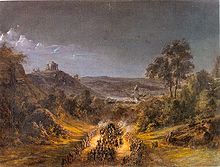
July to September
- July 8 : David Hazzard , American politician (* 1781 )
- July 10 : James F. Simmons , American politician (* 1795 )
- July 26th : Friedrich Ludwig Haarmann , founder of the first German building trade school (* 1798 )
- July 28 : Johann Hermann Kufferath , German composer (* 1797 )
- July 28 : Samuel Benton , Brigadier General of the Army of the Confederate States of America in the Civil War (* 1820 )
- August 4th : David Hansemann , German politician and banker (* 1790 )
- August 6 : Ferdinand Genähr , German missionary in China (* 1823 )
- August 9 : John Brown Francis , American politician (* 1791 )
- August 17 : Carl Wilhelm Traugott von Mayer , German lawyer and member of the Saxon State Parliament (* 1796 )
- August 21 : Émile Chevé , French music theorist and music teacher (* 1804 )
- August 22nd : John Appleton , American politician (* 1815 )
- August 23 : Johann Georg Frech , German music director, composer and organist (* 1790 )
- August 24 : Jakob Lorber , Austrian writer and musician (* 1800 )
- August 31 : Ferdinand Lassalle , German politician and publicist (* 1825 )
- August 25 : Johann-Peter Weyer , Cologne city architect and art collector (* 1794 )
- September 2 : Franz Heinrich Kleinschmidt , German Protestant missionary (* 1812 )
- September 4 : Henry Johnson , American politician (* 1783 )
- September 4 : Albert Smith White , American politician (* 1803 )
- September 8th : Johannes von Geissel , Cardinal and Archbishop of Cologne (* 1796 )
- September 15 : John Hanning Speke , British African explorer (* 1827 )
- September 29 : Carl Wilhelm Asher , German lawyer and publicist (* 1798 )
- September 29 : Jared W. Williams , American politician (* 1796 )
- September 30 : Joseph Glover Baldwin , American writer, politician and lawyer (* 1815 )
October to December
- October 1 : Juan José Flores , Ecuadorian President (* 1800 )
- October 1 : Rose O'Neal Greenhow , spy for the Confederation in the American Civil War (* around 1815)
- October 1 : Reuben Wood , American politician (* 1792 or 1793 )
- October 2 : Lodewijk-Jozef Delebecque , Belgian bishop (* 1798 )
- October 9 : Rudolf Keyser , Norwegian historian (* 1803 )
- October 12 : Roger B. Taney , US Supreme Court Justice (* 1777 )
- October 18 : Jacques François Gallay , French horn player (* 1795 )
- October 20 : Carl Christian Rafn , Danish antiquarian (* 1795 )
- October 24 : James Jay Archer , American Brigadier General (* 1817 )
- October 26 : Bloody Bill Anderson , American pirate (* 1840 )
- November 7th : David Sassoon , Indian-British merchant (* 1792 )
- November 8 : Juan Van Halen , Spanish general (* 1790 )
- November 20 : Erastus Fairbanks , American politician (* 1792 )
- November 23 : Friedrich Georg Wilhelm Struve , German astronomer (* 1793 )
- November 25 : David Roberts , British painter (* 1796 )
- November 30th : John Adams , American Brigadier General of the Confederate States of America (* 1825 )
- November 30th : William Balfour Baikie , English African explorer (* 1824 )
- November: Johann Andreas Deneys , German sculptor (* 1812 )
- December 1 : William L. Dayton , American politician (* 1807 )
- December 4th : John Fowler , English inventor and engineer (* 1826 )
- December 8 : George Boole , British mathematician (* 1815 )
- December 11th : Aloys Anderle , Bohemian tenor and opera singer (* 1821 )
- December 20 : Josef Proksch , Czech-German composer (* 1794 )
- December 21 : William Henry Fry , American composer and music critic (* 1813 )
- December 22nd : Ferdinand Anderson , German lawyer and politician (* 1804 )
- December 31 : George M. Dallas , American politician (* 1792 )
Exact date of death unknown
- Nana Asma'u bint Shehu Usman dan Fodiyo , Nigerian poet and teacher (* 1793 )
Web links
- Digitized newspapers from 1864 in the newspaper information system (ZEFYS) of the Berlin State Library
- Austrian newspapers from 1864 in AustriaN Newspaper Online (ANNO) of the Austrian National Library
















